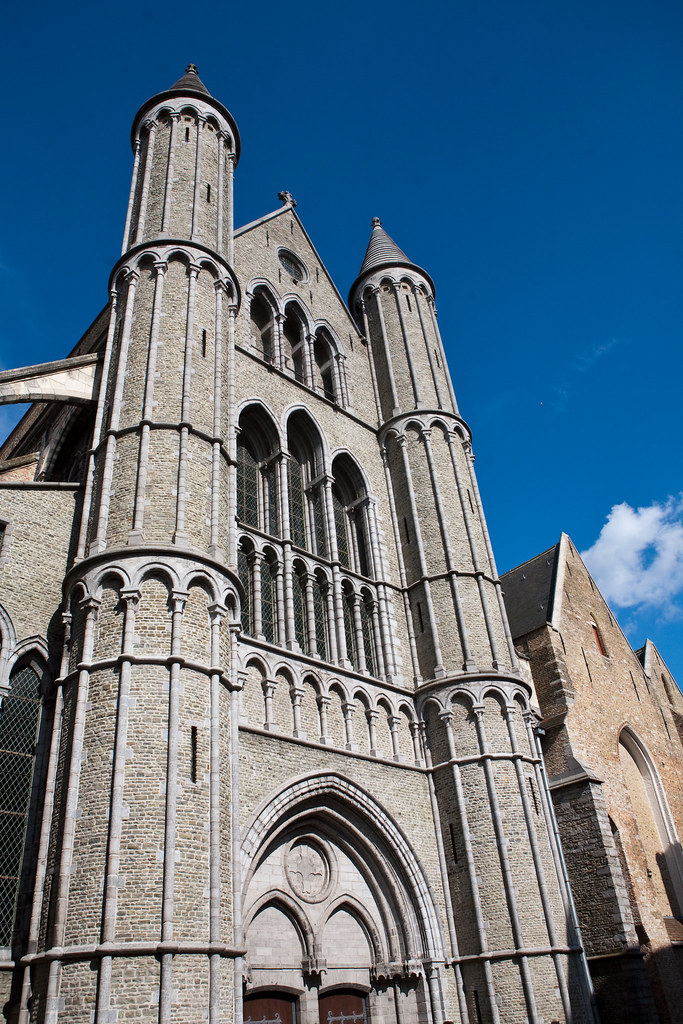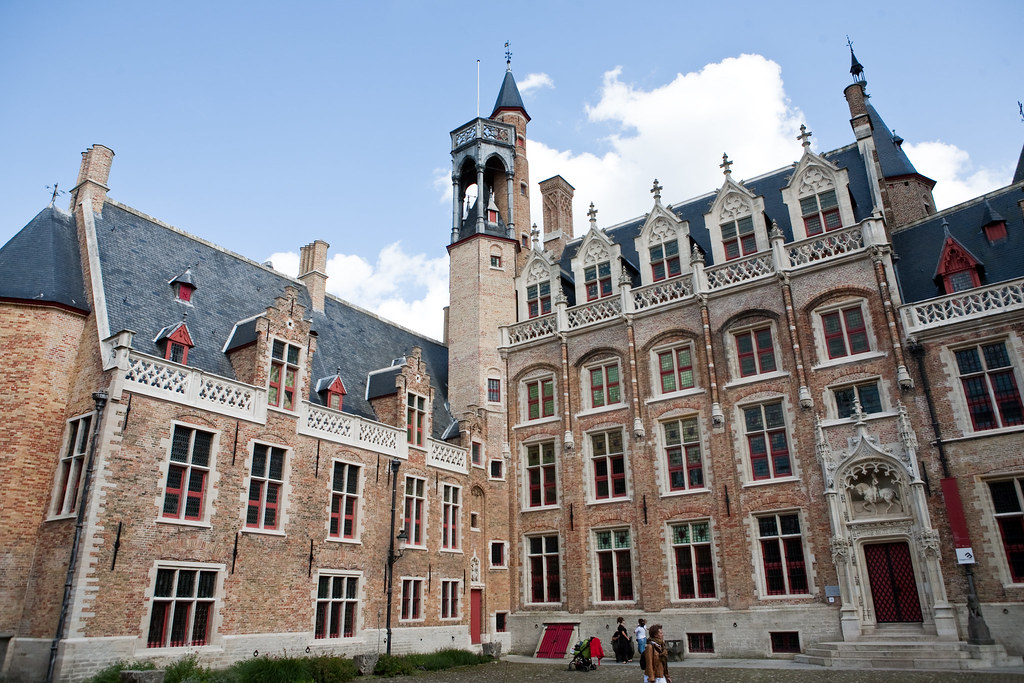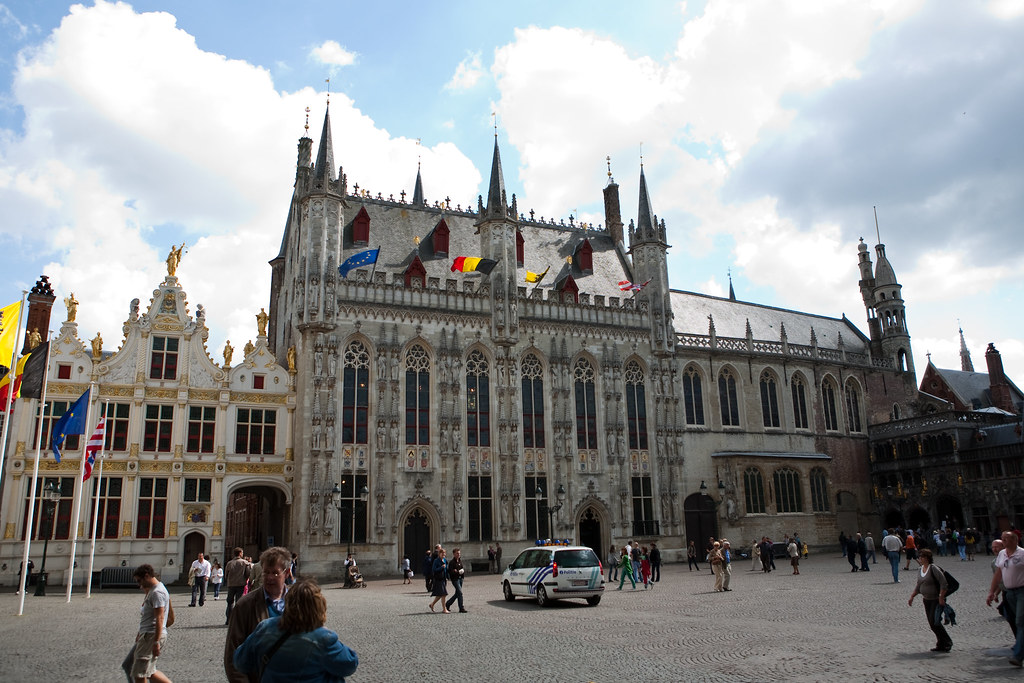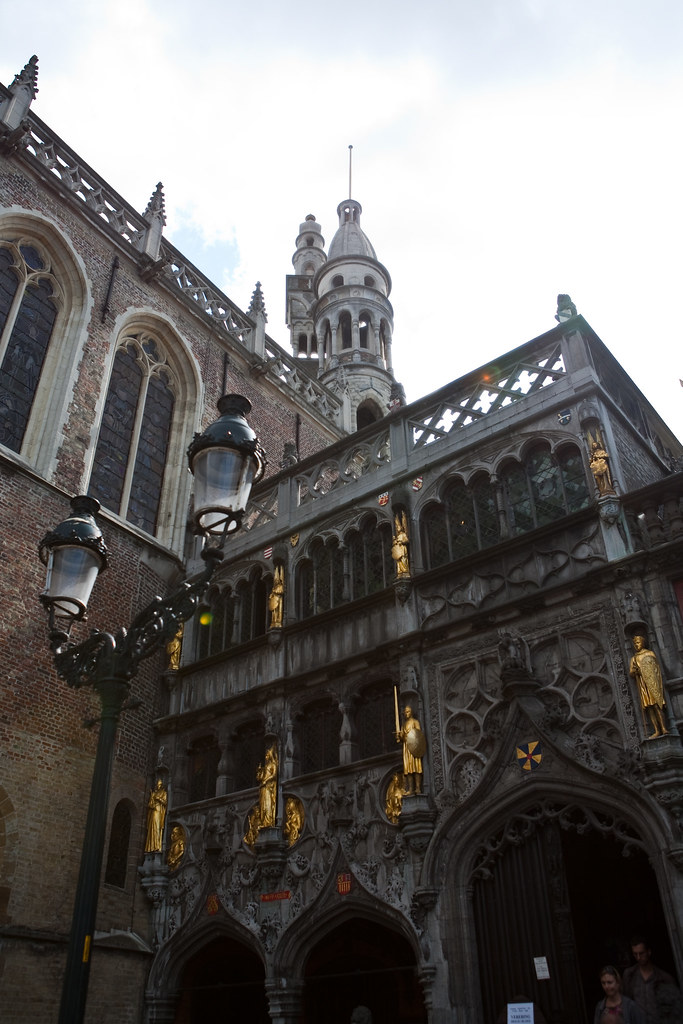It's lucky that the hostel I lived provided free walking tour, so that participants can watch the scene of this historical city and know some stories about it. Well, I can not remember all of them, so I just write down what I still remember here. 🙂
The watercourses
Bruges is much closer to the ocean hundreds of years ago than today, and it was a city of trading and water transporting importance. Today, you can still see the water-lock-bridge in this city.
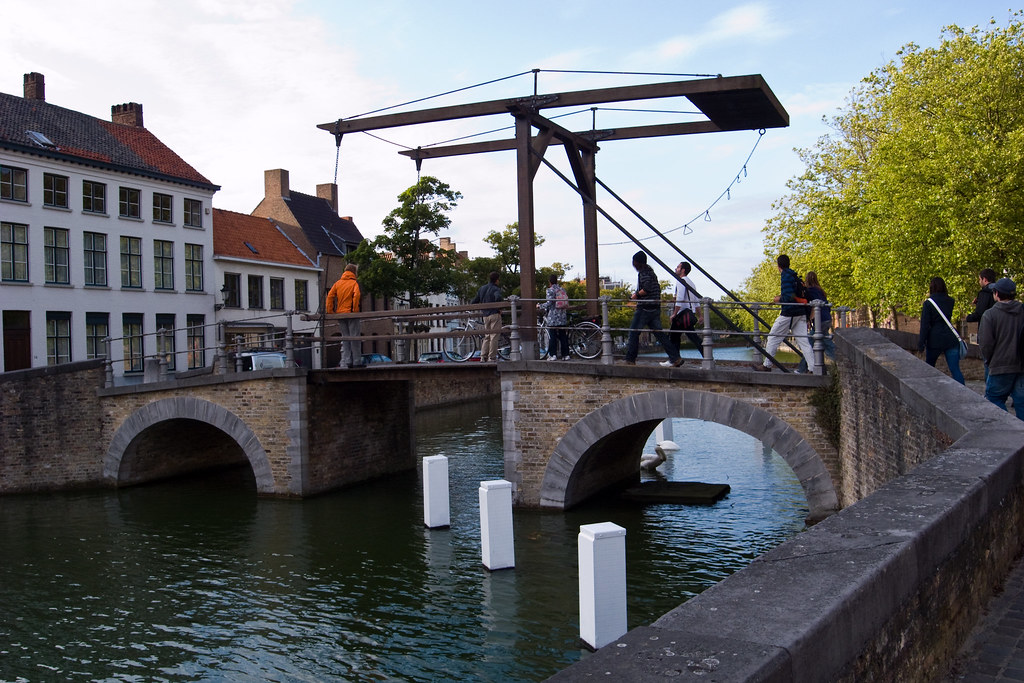
The end of this watercourse was the palace of trading in the past. (Actually, this watercourse went deeper than today.)
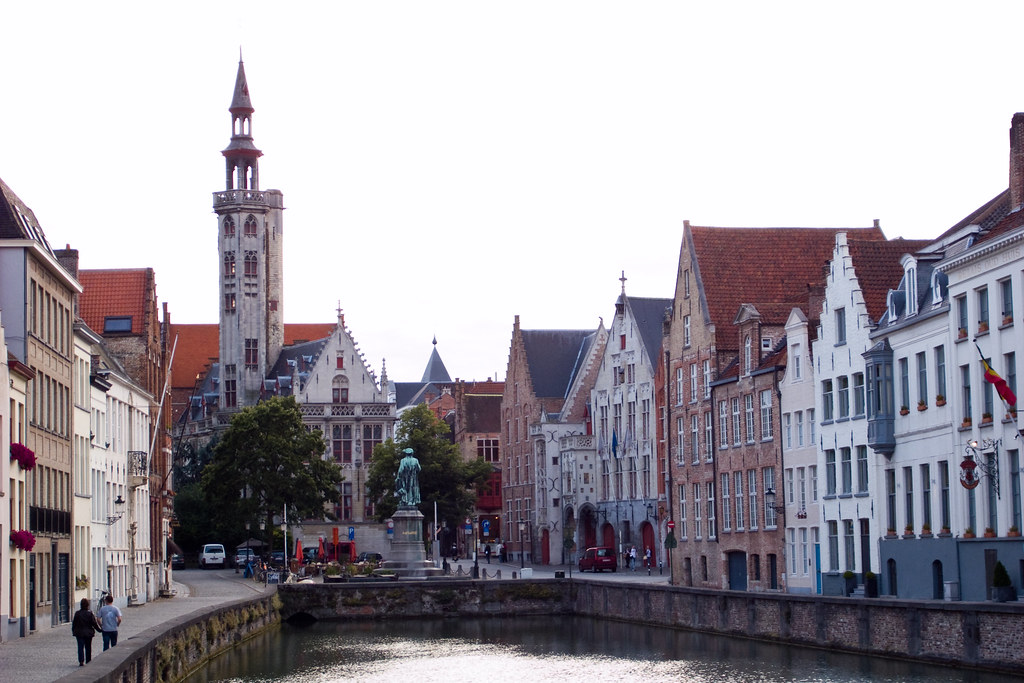
The watercourses are not used for transportation today, but they do become beautiful scenes in this city. (Well, after the government cleans them up. 😛 Just like the Love River in Kaohsiung city.)

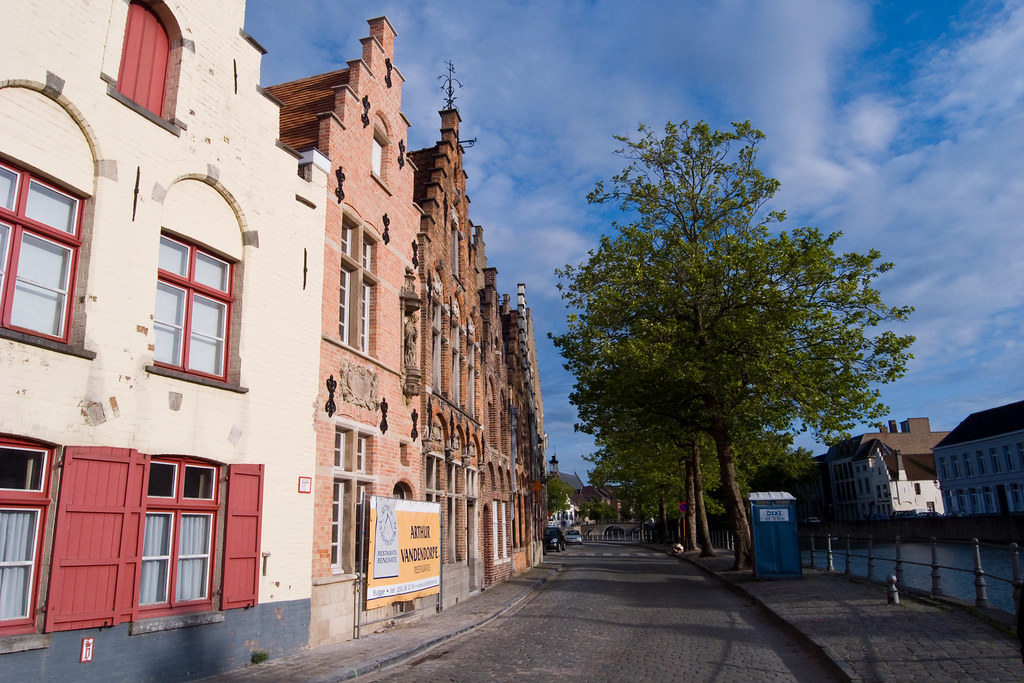
The Financial City
Not today, but Bruges had been a financial city. The financial activities was rising and flourishing from early 13th century. As a trading center, there were a lot of financial activities in Bruges. In 1309, the first "bourse" (stock exchanging center) was built in Bruges. The old brouse in Bruges is the "Fries Museum" today, and you can not be aware of money smell there anymore. (only fries :P).
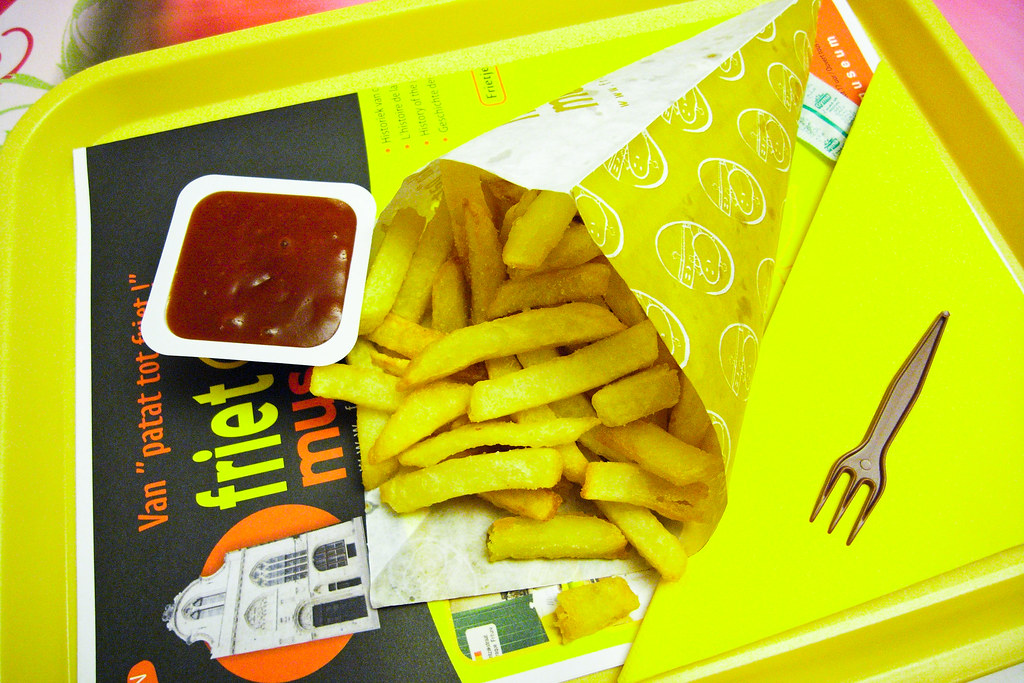
The name of this city
Well, there are many versions about how the name, Bruges, comes from, but I love the one coming up most.
Because this city was a financial and trading center, so people here had to defense invaders. They facilitate the watercourses and expand them as the city moat. Concerning both transportation convenience and defense, many gates and bridges were built. So this is a city of bridges, and people called it "Bruges" later on.
As an important city, it's not surprising there were many races in this city. And, people of different races liked to gather in different places, so you can find some streets named by some races or countries, such as Spanjaardstraat.
Abbey and Priest
There are some abbeys in Bruges, just like other cities. But, surprisingly, there is a priest school in Bruges, named Grootseminarie. More surprisingly, there are only a few students in this school, and only one student graduated in 2009. There were about 50 graduate students half a century ago. Although they can drink beers in the breakfast and be close to God, I still think they should find some ways to pull more students in. :p

Lace
Belgium is famous by high quality lace. Although most lace products in the world are exported from China today, you can still find many local lace products in Belgium. At the age of Crusades, there were many poor widows. So they can only lived in a small house. Look, what a small, short and low door! The small door also inform us that the height of people in the past is lower than today.
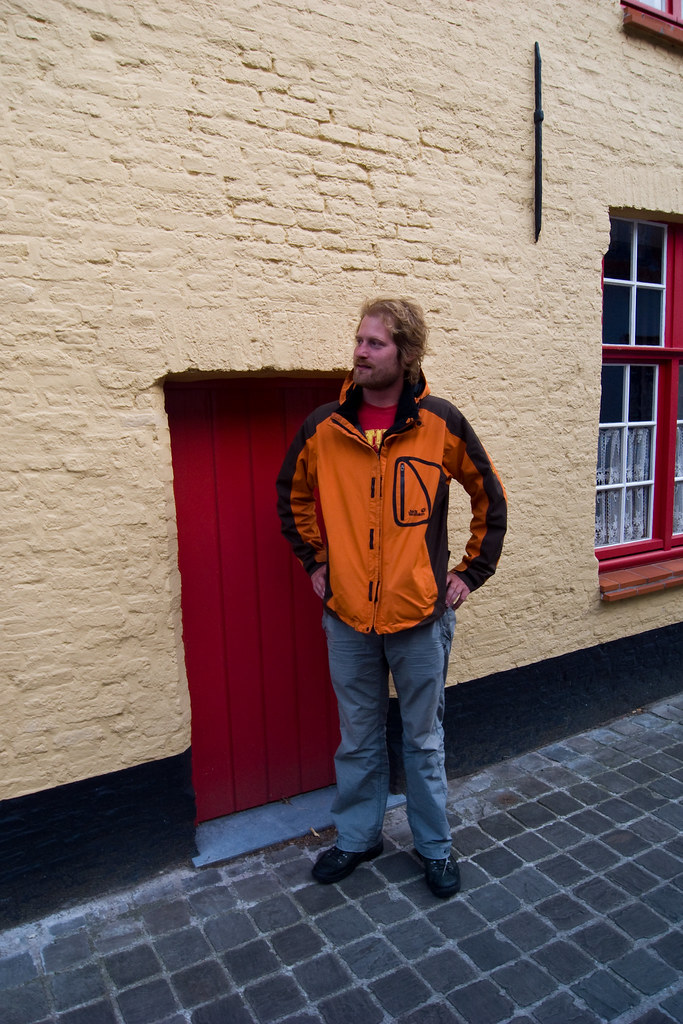
Those widows lived in the northeast region of Bruges, and they started to sew and weave laces for money and keeping their daily lives. The high quality of laces made Bruges renowned for years. However, with the increase of personnel cost, most lace industries have moved to China or other Asia countries.

Beers
Belgium is also renowned for its beers. Bruges had many breweries in old age, but only one left today -- De Halve Maan(the half moon). They provides tour covers introducing the brewery and the whole process of making beers.
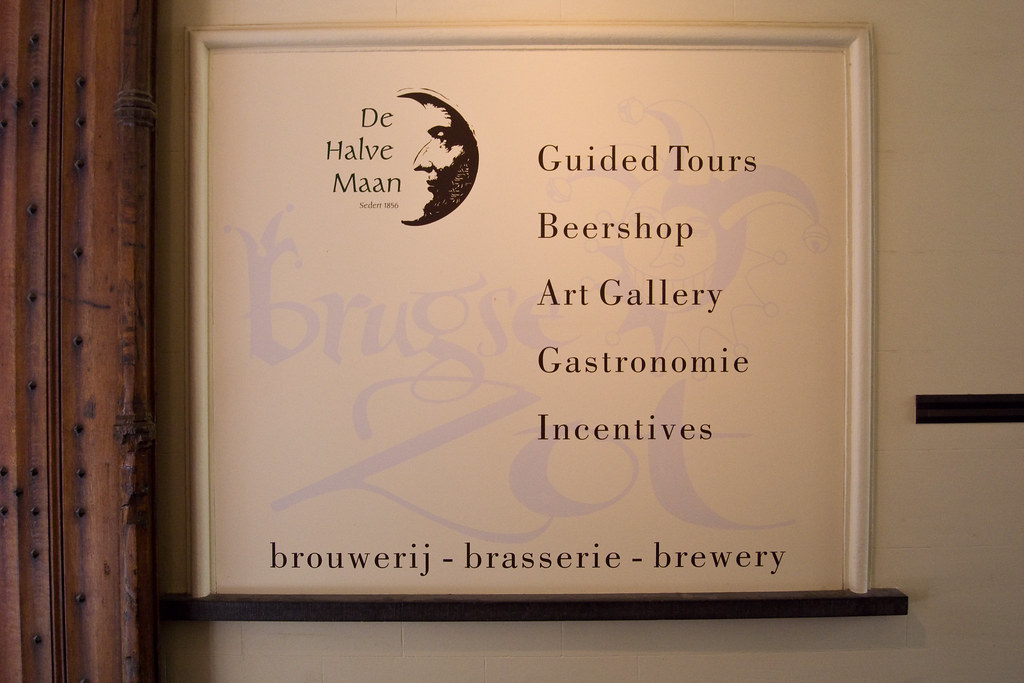
They had produced many brands of beers, and here is the wall of beer cans.

In Belgium, drinking beers can be a serious thing, not like in Taiwan. Actually, each beer has its own glass, which has the label and a designated line. If you pour a bottle of beer correctly, the boundary of beer and froth would be at the designated line, and the top of froth is just at the fringe of the glass.
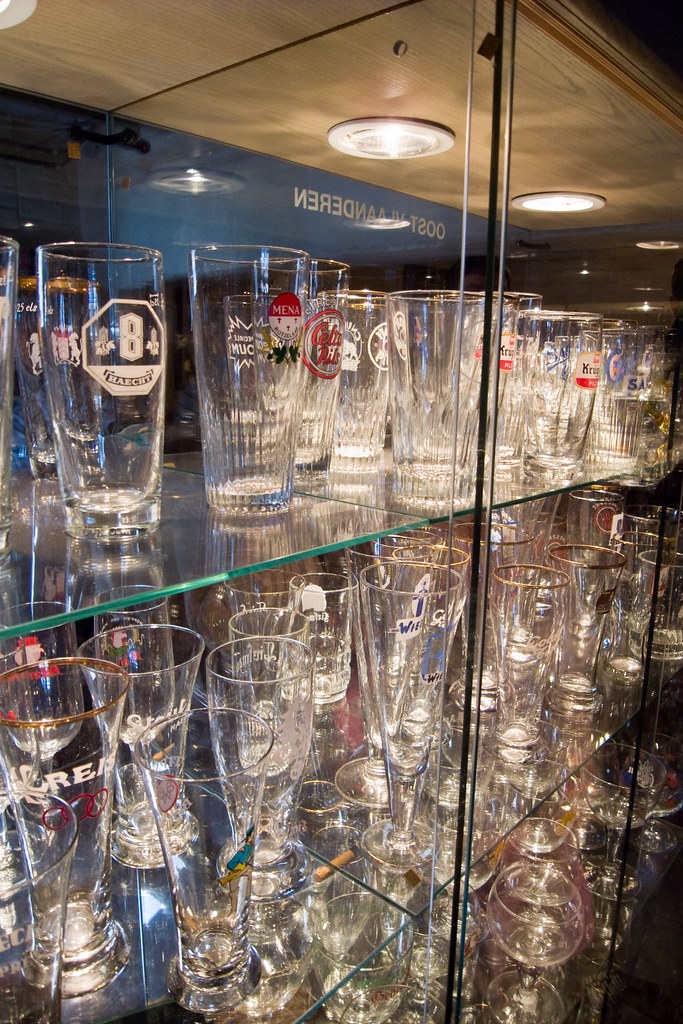
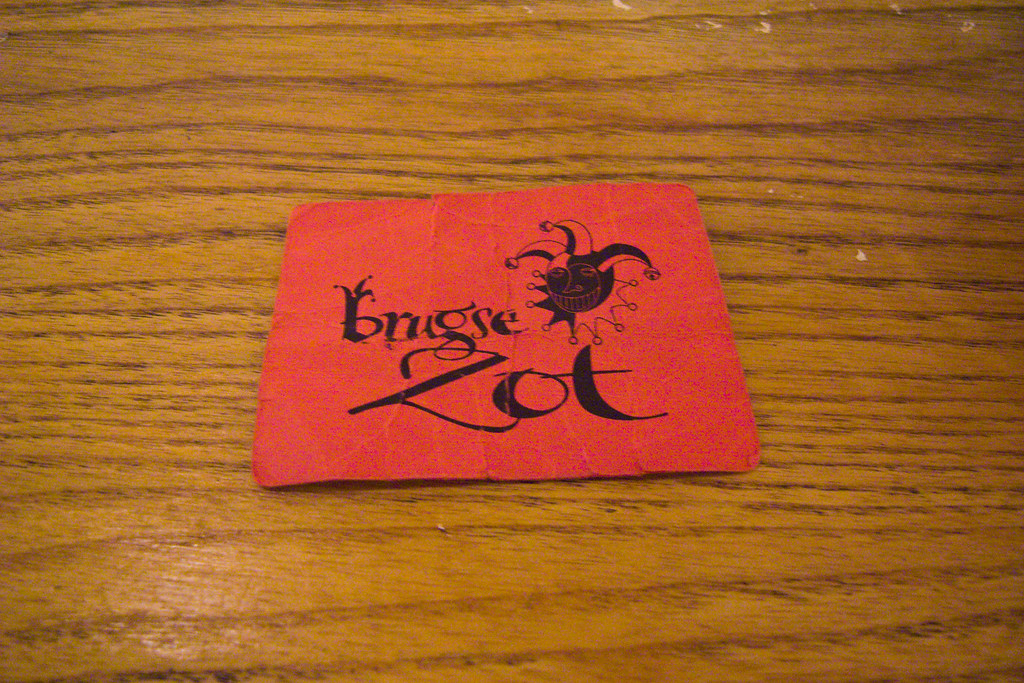
Buildings
There are a lot of old buildings in Bruges, and you can find the revolution of building styles here. For the following picture, the left building was built in 1644, you can find the stairs-design frontage, and the same as the middle building. However, the building in the right was built in 1776, the frontage became arc design.

The Gothic style buildings can be found in Bruges. Pointed arch, ribbed vault and flying buttress.
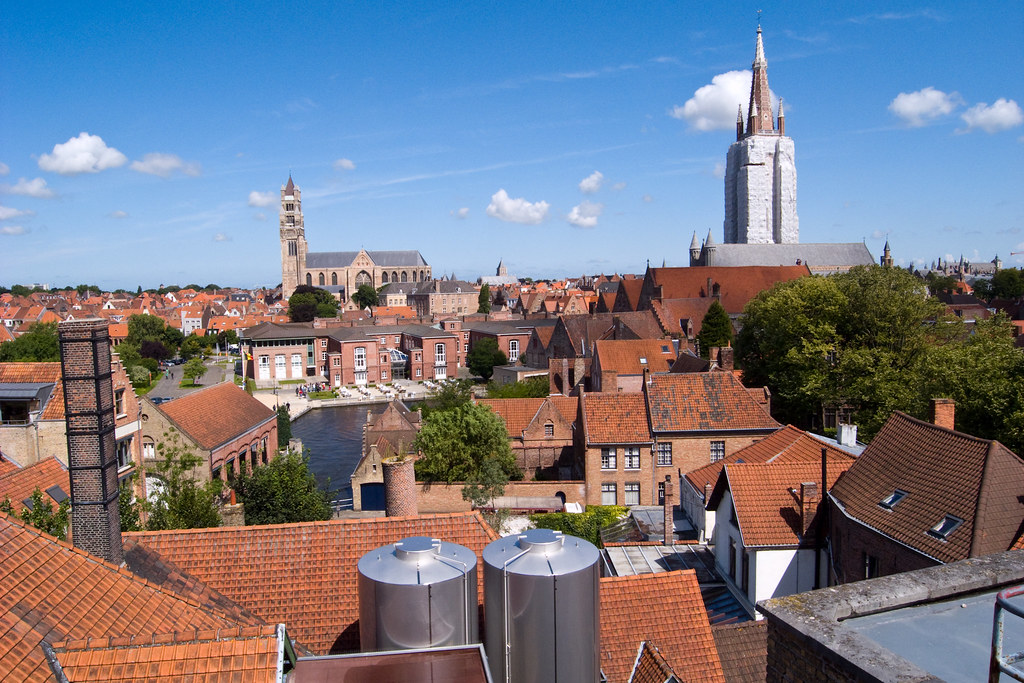

↓flying buttress (the left most tiny part XD)
